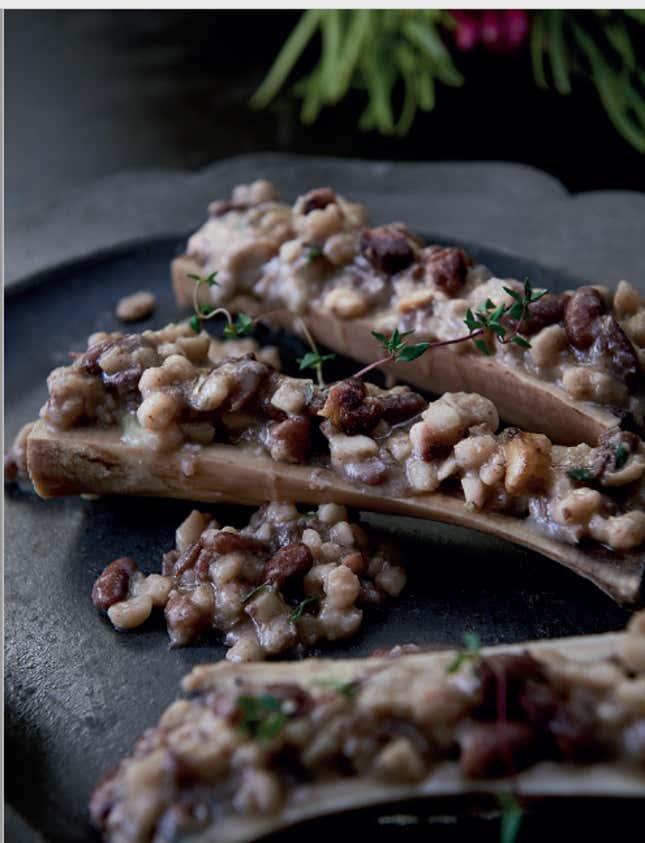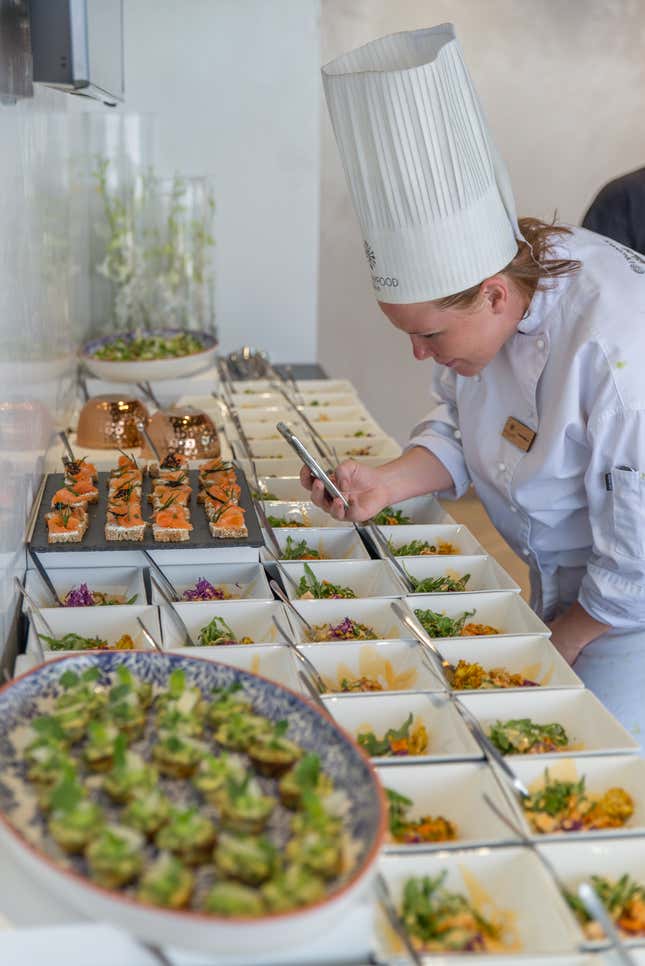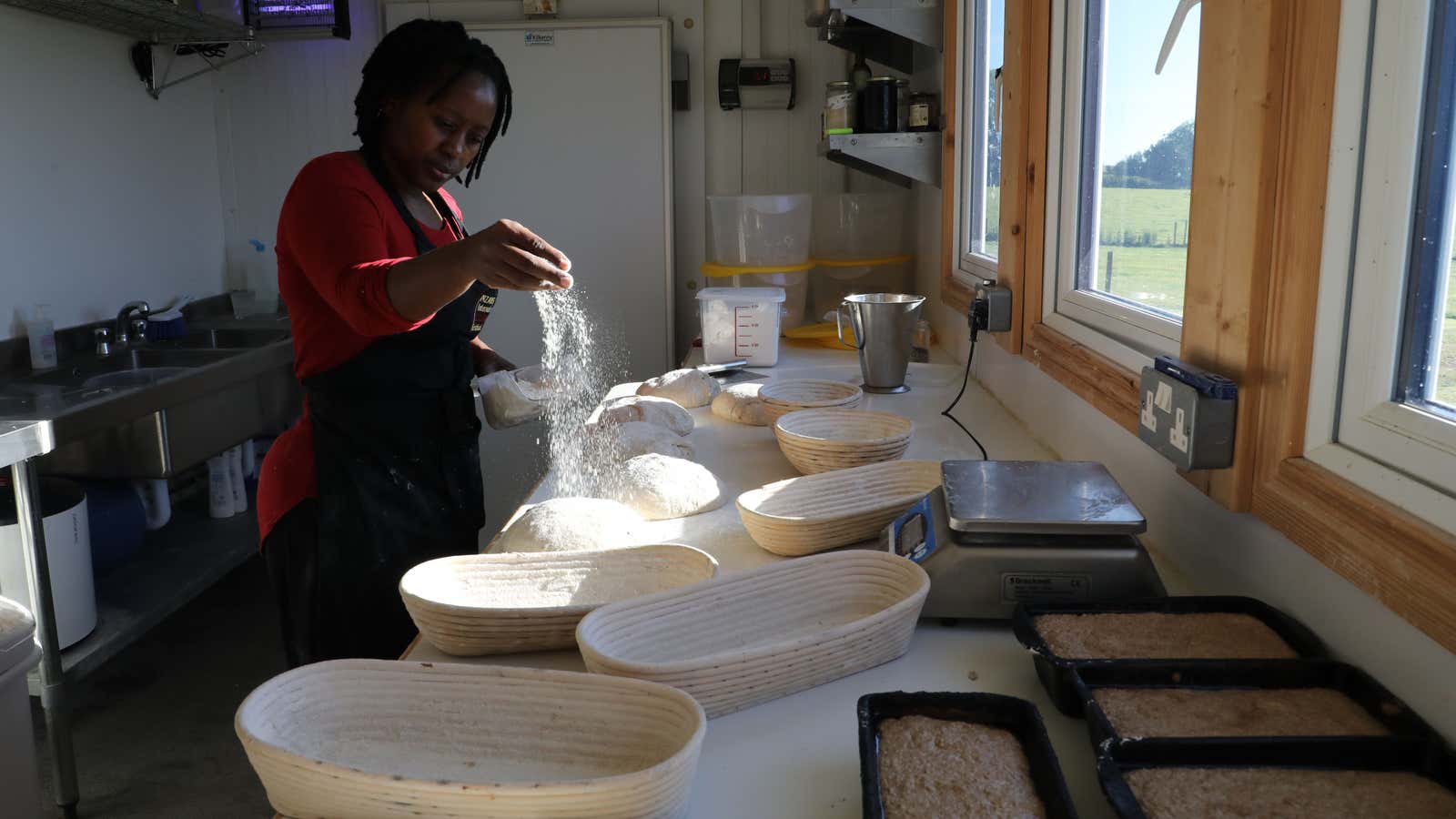As a child, South African chef Nompumelelo Mqwebu would skip home from school, dreaming of the pumpkin pudding waiting for her at her grandmother’s house. Years later, the world class South African chef’s prized pumpkin dessert, inspired by her grandmother’s recipe, is one of the local delicacies featured in her 2017 cookbook, Through the eyes of an African chef. It hints at the beginnings of a new South African food culture that is proudly rooted in tradition, yet infused with creativity and young energy.
A celebration of local cuisine is sorely missing in South Africa. According to data collected by tourism agency Explore Sideways in 2017, South Africa’s food tourism industry has experienced steady growth over the last three years. Yet local cuisine is conspicuously absent. In tourism hotspots like Cape Town you can find representations of food culture from all around the globe, but with the exception of some Cape Malay offerings and one or two township restaurants, nothing quintessentially local. You’re also more likely to find food from Ethiopia or Senegal in cities around the world than South African-themed spots.

This isn’t because South Africa suffers from a lack of diversity of good food options. It’s that it historically hasn’t done much to promote that diversity. That’s left South Africans unsure about what defines them, food-wise.
“If I say ‘South African cuisine,’ everyone nods, but nobody has a clue what that is!” says chef and entrepreneur Miles Khubeka, speaking at a panel with Mqwebu in Johannesburg recently. “There are nine provinces and 11 official languages. [But] what is official, as a South African cuisine?”
Indeed, confronted with the need to describe local cuisine to visiting friends or tourists, South Africans often fall back onto shishanyama or braai, meat grilled over an open fire, and biltong, a dried meat snack similar to beef jerky. While both are shared cornerstones of South African cuisine, with roots in both Dutch and Khoi San culture, this habit is a sad reduction of an otherwise diverse culinary landscape.
Khubeka, founder of the popular restaurant Vuyo’s in Soweto, and Mqwebu, who was honored this week at the International Gourmand Awards in China, are members of a younger generation of chefs and business owners intent on shining attention on a part of South African culture that until recently has rarely received it.
South African fusion
The evolution of local indigenous cuisine in South Africa has a long and complex history. After the arrival of colonists in the 19th century, local food traditions became fused with outside culinary influences over time, from Dutch and British dishes, to the delicacies brought over by slaves and laborers from Madagascar, Indonesia, Malaysia, India, and coastal African countries like Mozambique. This had the effect of diluting local traditions, but also creating a mosaic of new ones.
Land dispossession and segregation during apartheid also disrupted traditions. In her book, An Empty Plate, economist Tracy Ledgers explains how black commercial farmers successfully farmed the majority of South African farmland with their families until the 1913 Land Act, which set aside just 8% of all farmland as ‘reserves’ and made it illegal for the remaining white-owned land to be leased to black farmers. This broke down intergenerational chains of knowledge around farming and food traditions for the country’s majority-black population.
Khubeka laments that South African cuisine was not even taught at chef school until recently. Indeed, South Africa’s culinary schools still focus largely on international cuisine, and the food sector remains largely white. The underrepresentation of people of color reinforces a neglect of local cuisine and its potential for expansion. “With our history, we look up to America, we look up to Europe,” Mqwebu says. “So if it comes from Europe, it’s the best.”
Yet despite having been taught the classic international techniques for cooking food, Mqwebu has always felt the urge to recall her grandmother’s style of cooking, she says. “Whatever I’m making … I’ve gone back to, ‘What did my grandmother teach me? What vegetables do I remember?’”
Without a new generation of South African chefs to revive them, flavors and important sources of nutrition that have simmered in the background of South African experience will slowly disappear. As Khubeka says: “After your flag and your national anthem, your cuisine is the third most important thing that defines you as a culture.”

A return to a healthy heritage
Local chefs want to recall a past where meals were healthier and more plant-based. Grains like sorghum and millet, and leafy greens, were everyday staples, with meat reserved for special gatherings. In some places, the meat offering might be edible termites or Mopani worms (a type of caterpillar), both rich in protein. (Before you wince, consider the history of the lobster, once fed only to prisoners in the USA, to public outcry at this inhumane treatment. Of the humans, that is.)

Championing traditional, protein-high local crops—pulses like the Juga bean and the cowpea—that can withstand low rainfall and droughts, could help to drive down the price of healthy food while at the same time reviving South Africa’s food culture.
Khubeka puts the challenge of reviving South African cuisine and culinary tourism into practical terms. “We need to articulate and define what [South African cuisine is] ourselves. Even if it’s just five or ten core things that we all as South Africans agree on—that this is quintessentially South African—that’s a basis. That gives chefs a platform to innovate from.”
This approach could not only help South African waistlines, but also appeal to the appetites of visitors. In a survey of 300 tourists (pdf) about their food experience at the upmarket V&A Waterfront in Cape Town, researcher Takawira Mutsago found that 82% of respondents expressed the desire to experience authentic South African cuisine. But a majority perceived the dining experience as just a copy of Western norms.
Mqwebu hopes the country’s upcoming generation of cooks will make traditional cuisine fashionable once more, using healthier, more sustainable foods. “If we make these things quite exciting, my hope is that these young chefs are going to be proud of our indigenous ingredients [and] create recipes around them, so the whole food scene in South Africa changes,” she says.
“No one can do this for us,” Khubeka says. “We have to validate ourselves.”
This article is part of Quartz Ideas, our home for bold arguments and big thinkers.
